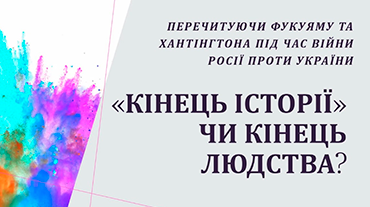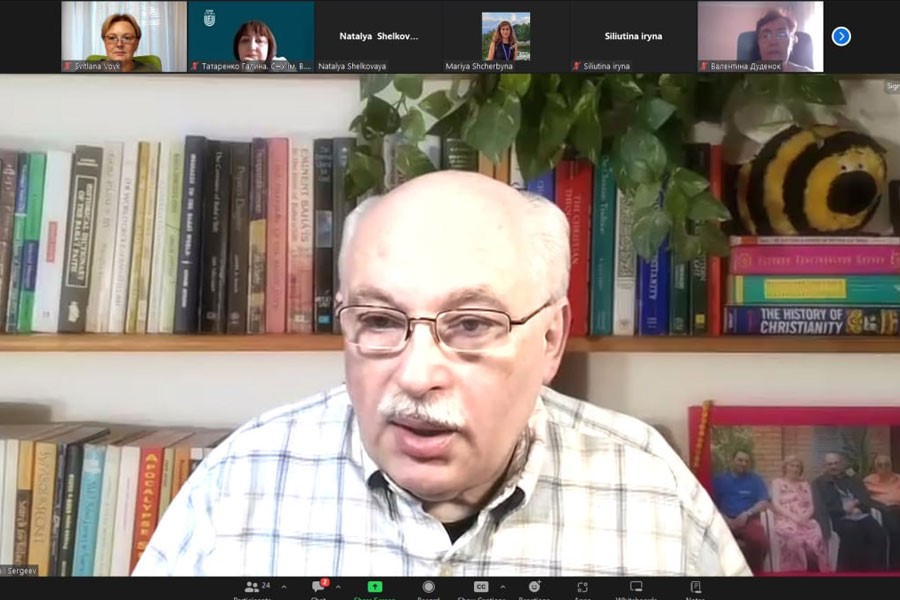
Professor Mikhail Sergeev from the University of the Arts in Philadelphia (USA) delivered a guest lecture at the Department of Political and Cultural Studies of Volodymyr Dahl East Ukrainian National University on the topic “The ‘End of History’ or the End of Humanity? Rereading Fukuyama and Huntington During Russia’s War Against Ukraine”
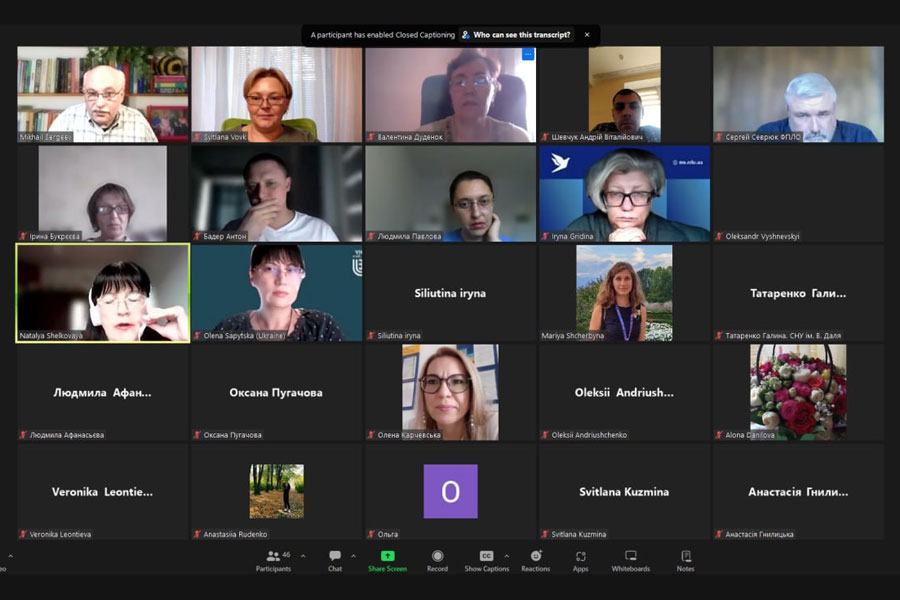
In his lecture, Professor Sergeev attempted to comprehend the deep roots of Russia’s expansionist ambitions and actions (from tsars and emperors to Putin), which have historically carried predominantly barbaric characteristics. He aimed to explore the reasons for Russia’s modern war against Ukraine and reflect on possible scenarios for the future development of humanity.
To achieve this goal, a comparison was made between Francis Fukuyama’s work “The End of History and the Last Man” (including his distinction between “isothymia” – the desire to be equal to others – and “megalothymia” – the desire to be superior to others, which applies to Russia, a nation that has always been megalothymic) and Samuel Huntington’s “The Clash of Civilizations and the Remaking of World Order.”
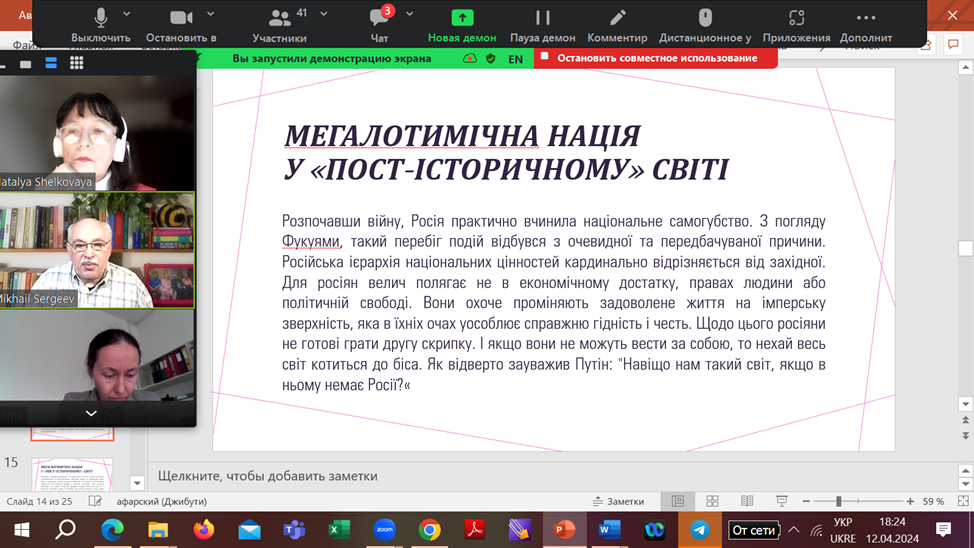
During this comparison, Sergeev analyzed the teachings and ideas of various Western thinkers: the ancient historian Herodotus (5th century BCE) on the difference between “civilized” Greeks and “barbaric” non-Greeks (“Histories”); the ancient Greek philosophers Plato on the composition of the human psyche into three parts (reason, passions (thymos), and desires), and Aristotle on the just and civic political regime on one hand, and the unjust and barbaric rule on the other hand (“Politics”); Georg Wilhelm Friedrich Hegel on the essence of freedom and the “unhappy consciousness”; Alexandre Kojève on the dialectic of Master and Slave.
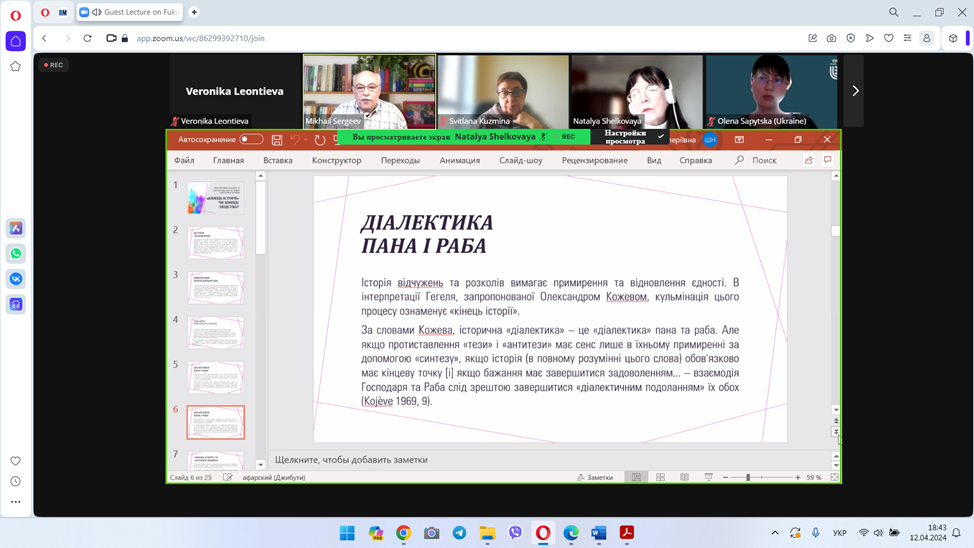
Arnold Toynbee on the essence of global civilization development (“A Study of History”);
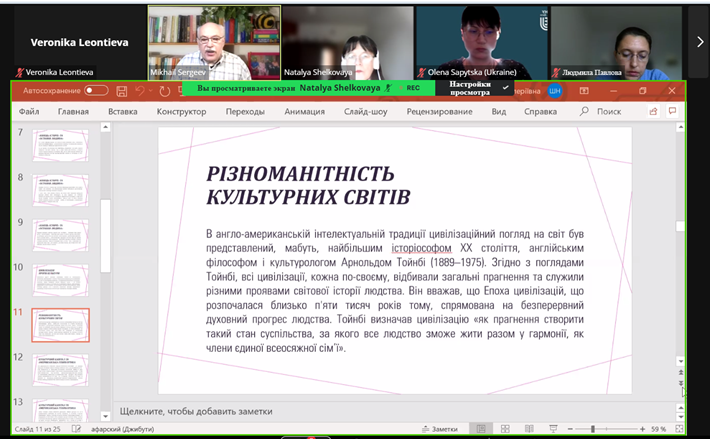
Konstantin Kuzanovych on three unique features of the Russian national spirit (religious tradition, collectivist mentality, legal nihilism).
A profound and complex analysis in the modern circumstances of mental, political, military, and economic chaos led Sergeev to the following thoughts.
In the twenty-first century, three bastions of authoritarianism have retained their viability and attractiveness – Islamic states, Russia, and China. Religious fanaticism in Islam, Russia’s nuclear blackmail, China’s economic rise. China not only remains the oldest bastion of autocracy, which has existed for over two thousand years. It has also become the first – and so far the only – authoritarian regime that successfully competes with democratic America on the economic field. Compared to China, Russia is a declining kleptocratic state with military ambitions that far exceed its current capabilities. As a Eurasian empire, Russia has become the heir to the Golden Horde – the Mongol empire. The confrontation between Ukraine and Russia in this historical context is an ancient dispute between the Western Charter of Freedoms or the Great Charter of Freedoms and the Mongol imperial code of laws known as the “Yassa”.
When it comes to Russia and its imperial ambitions, as emphasized by the renowned Polish-American diplomat and international relations expert Zbigniew Brzezinski in his book “The Grand Chessboard,” “Ukraine, a new and important space on the Eurasian chessboard, is a geopolitical pivot, because its very existence as an independent country helps to transform Russia. Without Ukraine, Russia ceases to be a Eurasian empire.”
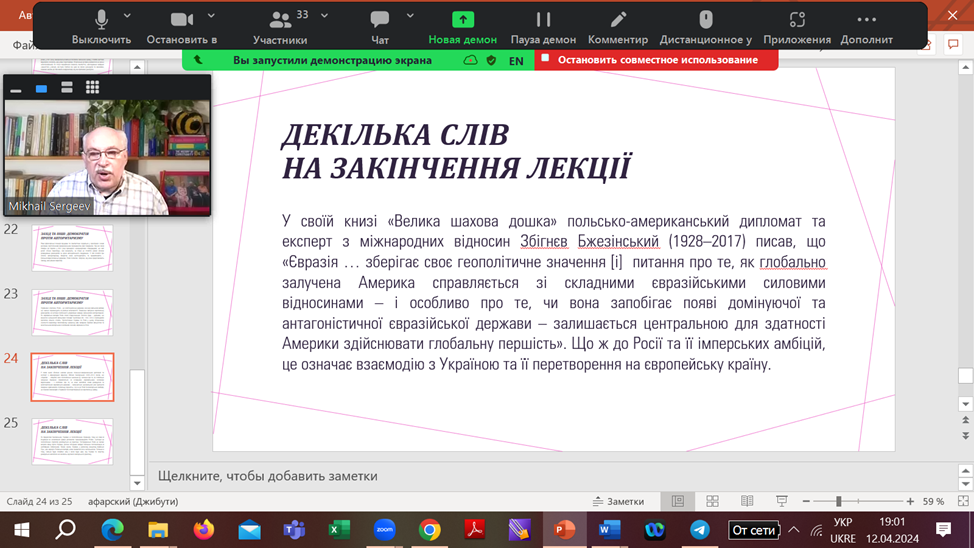
After the lecture, there was a lively discussion where participants attempted to hear the “voice of America” regarding the war in Ukraine and its causes and consequences
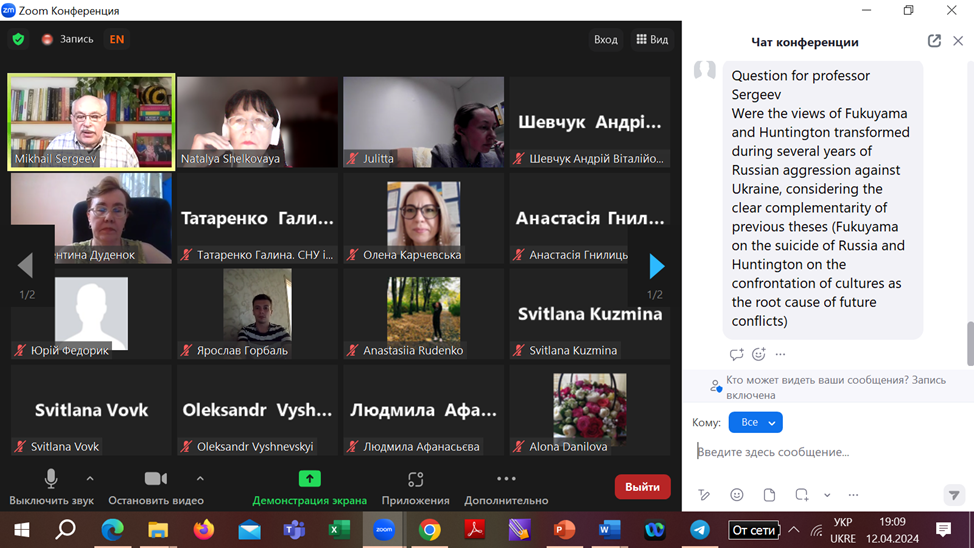
The lecture attracted more than 50 listeners (professors, students, graduate students) from the Volodymyr Dahl East Ukrainian National University and other universities not only in Ukraine but also abroad that cooperate with the Volodymyr Dahl East Ukrainian National University.
The lecture was delivered in English with translation into Ukrainian. The organizer, moderator and translator of the presentation slides from English into Ukrainian was Associate Professor Nataliia Shelkovaia, and the translators of the lecture were Associate Professor Mariia Shcherbyna and PhD student Yuliia Khlystun.
In the end, the participants and the organizer and moderator of the lecture, Associate Professor Nataliia Shelkovaia, sincerely thanked the distinguished American colleague for an extremely interesting and important lecture for us, Ukrainians, which provided a lot of food for thought about the very difficult and tense situation in Ukraine due to the war

